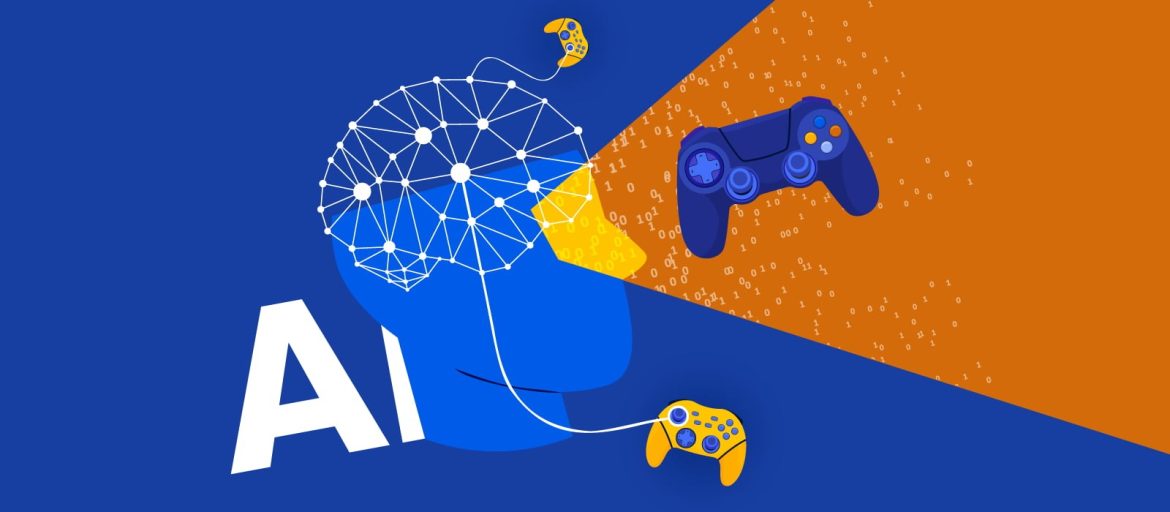As a seasoned technical copywriter with a decade of experience, I am excited to explore the profound impact of artificial intelligence (AI) in the realm of game development. This article delves into how AI is transforming various facets of game creation, from design and development to enhancing user experiences.
The Evolution of AI in Game Development
Early Implementations
AI has played a role in gaming for decades, primarily in non-player character (NPC) behavior and game difficulty adjustments. Early implementations were relatively simple, with NPCs following predetermined paths and exhibiting limited decision-making abilities.
Advancements in Machine Learning
The advent of machine learning and deep learning has revolutionized AI in gaming. These technologies enable game developers to create more sophisticated AI systems that can learn from player behavior, adapt to different scenarios, and provide dynamic and engaging experiences.
AI in Game Design
Procedural Content Generation
AI is increasingly used for procedural content generation, creating game worlds, levels, and environments. This approach saves developers time and resources while delivering endless variations to players. Games like “No Man’s Sky” leverage AI to generate vast, procedurally generated galaxies.
Player Behavior Prediction
AI algorithms analyze player behavior to predict player actions, preferences, and playstyles. This insight allows developers to tailor in-game content, challenges, and rewards to individual players, enhancing engagement and personalization.
AI in Game Development
Testing and Bug Detection
AI-driven testing tools can simulate player interactions and identify bugs, glitches, or balance issues more efficiently than manual testing. This accelerates the development process and ensures a smoother gaming experience at launch.
Realistic Graphics and Physics
AI-powered rendering techniques, such as ray tracing, enhance the visual fidelity of games. AI-driven physics simulations create more realistic in-game environments and interactions, further immersing players in virtual worlds.
AI in Gameplay
NPC Behavior and Adaptation
Modern AI systems empower NPCs to exhibit complex behaviors, adapt to changing circumstances, and provide challenging interactions for players. NPCs in games like “The Elder Scrolls V: Skyrim” showcase AI-driven decision-making and interactions.
Dynamic Difficulty Adjustment
AI algorithms monitor player performance and adjust game difficulty in real-time. This ensures that players are consistently challenged without becoming frustrated, resulting in a more enjoyable gaming experience.
AI in User Experience
Voice and Speech Recognition
AI-driven voice recognition systems enable players to interact with games through speech commands. This feature enhances immersion and accessibility, as seen in games like “Assassin’s Creed Valhalla.”
Personalized Recommendations
AI algorithms analyze player preferences and behavior to provide personalized game recommendations, fostering player retention and expanding game libraries.
Challenges and Considerations
Ethical AI Use
As AI becomes more prevalent in gaming, ethical considerations arise. Developers must ensure AI-driven systems do not perpetuate biases or harm player experiences. Transparent and responsible AI development is crucial.
Development Costs
Integrating advanced AI systems can be resource-intensive. Smaller developers may face challenges in harnessing AI’s full potential, but open-source AI frameworks are becoming more accessible.
The Future of AI in Game Development
Enhanced Realism and Immersion
AI will continue to drive advancements in realistic graphics, physics simulations, and dynamic storytelling, creating more immersive and engaging gaming experiences.
AI-Generated Content
AI-generated content will become a staple in game development, allowing developers to create vast, ever-changing game worlds and narratives without exhausting resources.
Conclusion
In conclusion, artificial intelligence has become a cornerstone of game development, revolutionizing every aspect of the industry, from design and development to user experiences. The evolution of AI, fueled by machine learning and deep learning, empowers developers to create more dynamic, personalized, and immersive games.

